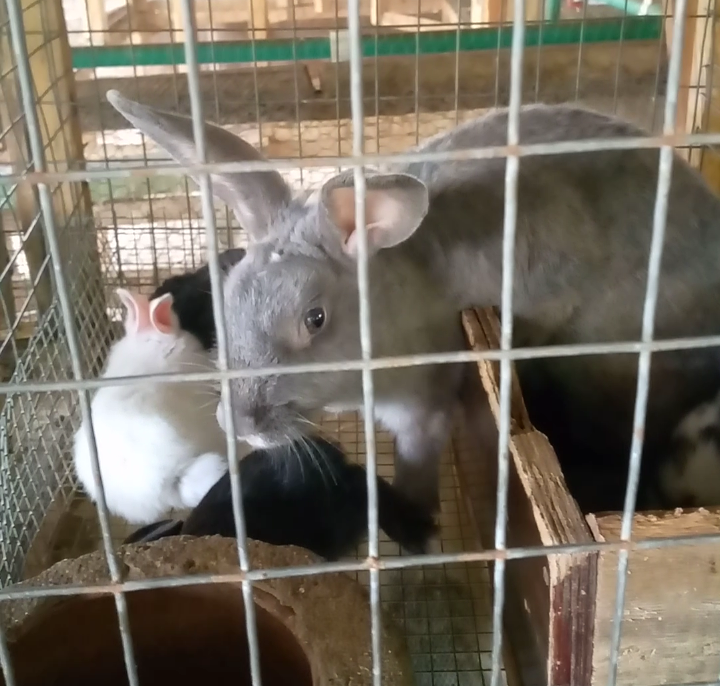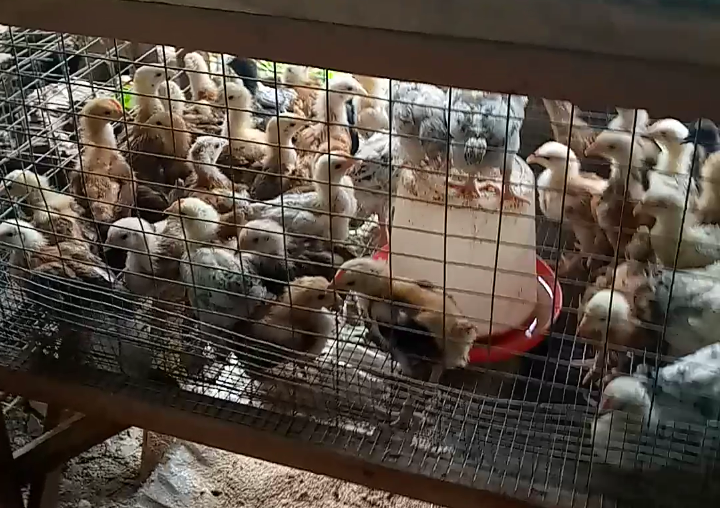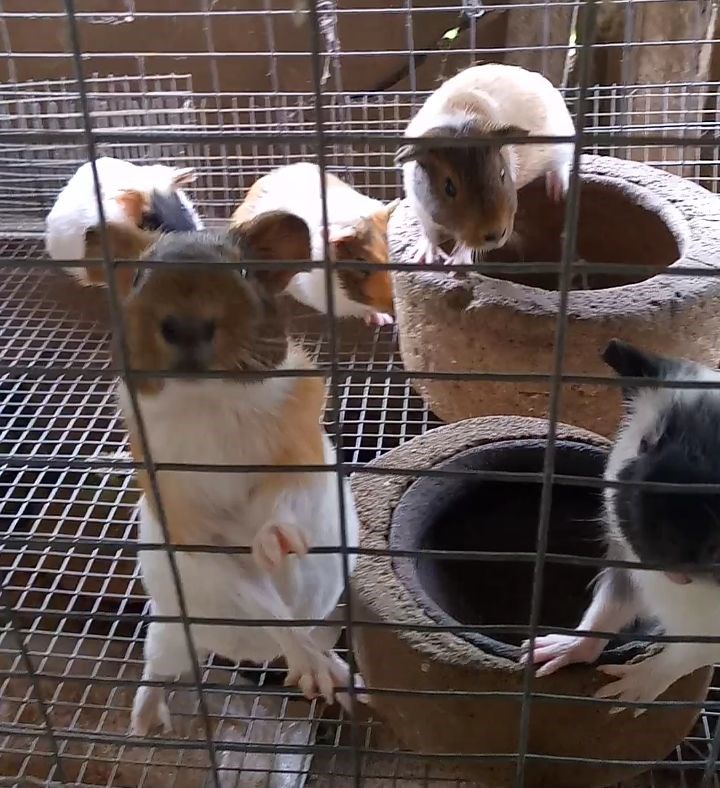ALIMOSHOTODAY: Thank you for your time, sir. May we get to know you?
FARMER: I am Akindiye Ayodele, a former civil servant who has been practicing poultry, Rabbitry, and snail rearing before I retired from civil service. After retirement, I decided to settle into farming fully. I produce rabbits, guinea pigs, fish, and poultry.

ALIMOSHOTODAY: Every business has its own challenges. What would you say are the challenges of the farming business?
FARMER: The first challenge in farming is securing a location where you can do whatever you want to do, that is secured from outsiders. The second challenge is funding the business. Like I always say, I don't encourage people to go on loan for agriculture because of the problem of repayment; because marketing may not correlate with sales. You can produce whatever you want to produce with the little cash you have on you instead.
ALIMOSHOTODAY: Funding, particularly, is always a challenge. What advice can you give to those sourcing funds?
FARMER: There are government-funded programs that encourage farming. You could go for these programs and from there, you are given inputs and some materials to start up. Another alternative is making do with your savings, or even borrow from your friends. I do mentor youths. I do this 14 weeks program for young aspiring farmers so they can learn from the grassroots to the sales point.

This is the time we have to look back to agriculture as a wealth-generating venture. There are export prospects in Agriculture that can help develop the economy.
ALIMOSHOTODAY: That's a point, sir! And taking a dive into that, what do you have to say to the government?
FARMER: Our leaders should think of programs that will encourage youths to come into agriculture. These programs should not be based on the local methods of farming, but on industrialized methods. Someone on one acre of land can grow maize with some industrialised equipment like it is done in China and other places. The government should so focus on that, thereby increasing food production and encourage the export of items that we have in excess at the same time.
ALIMOSHOTODAY: That said, what advice do you have for the youth of Alimosho and Nigeria at large who may want to go into farming?
FARMER: To our youths, I expect us all to go back to agriculture because it is the main source of wealth of our economy. There are so many things one can do in agriculture. If you don't want to go into animal husbandry, you can go into crop production. For example, when you produce seedlings in your backyard, just put them on sale on the Internet, people will come and buy and you will be making money from your house.

ALIMOSHOTODAY: We understand rabbit production is very profitable. How much does a matured rabbit go for in the marketplace these days?
FARMER: The price of a matured rabbit depends on the size and weight. In some places, the price is as much as N8000. A female can give birth to up to 68 offsprings in a year, giving birth to 8 at a time, 8 times in a year.
ALIMOSHOTODAY: The guinea pigs?
FARMER: Guinea pigs are very profitable. They are so prolific in production just like the rabbit. A guinea pig will go for N3500 for an adult.
ALIMOSHOTODAY: What about the grasscutter?
FARMER: Traditionally, people like to take grasscutter with pounded yam and with this, once the selling point is popular, people will come to buy it. Grasscutters are usually sold in colony or family, that is, 4 female and 1 male. They are housed together for about 3 months before the male is separated from the impregnated females, who after 5 months will start producing. A colony costs around N80,000.



